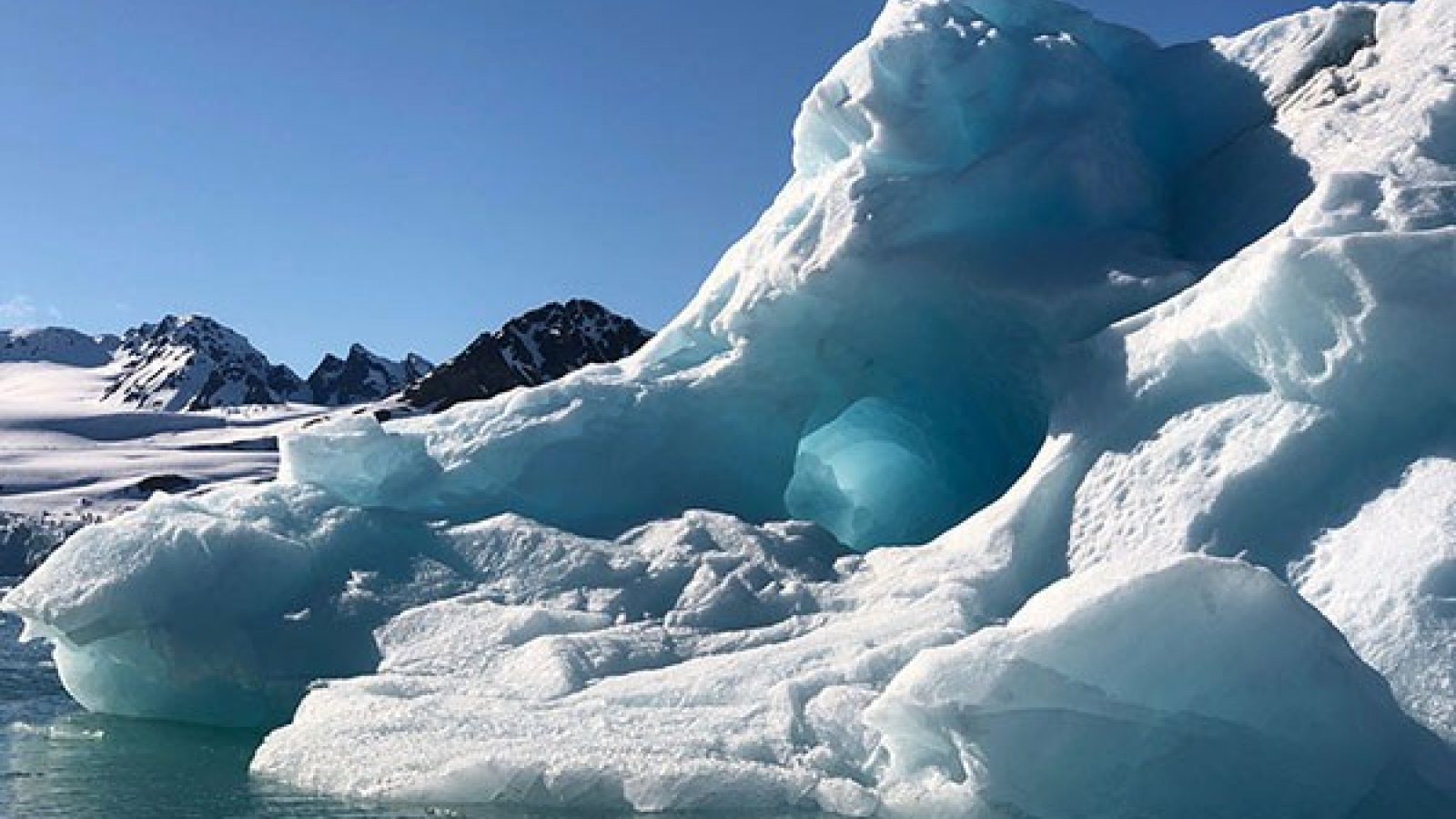In June, armed with many layers, we embarked on their The Arctic Circle Residency for artists, scientists, and educators. We sought this experience to explore ways of further integrating expedition based residencies into the Oxbow curriculum. For two weeks, we sailed on the tall ship Antigua along the mountainous west coast of Spitsbergen, the largest island of the Svalbard archipelago. Our ship manifest consisted of 30 artists/participants, 4 guides, and 9 ship crew members. The participants represented a globe spanning community of thinkers and makers interested in testing out ideas related to responding to climate change. The Arctic Ocean provided a profoundly dramatic setting to research together, network, tell stories and reflect as we sailed the glacial bays and hiked through thawing permafrost and snow.
We collaborated with the guides and crew so that our journey was shaped by the interests of those on board. We encountered various stunning coastal ecosystems and explored the worlds of arctic ice. Many early Arctic settlements, along with artifacts from whaling and mining lie perfectly preserved by the frozen desert setting, and we one day learned to differentiate potential firewood from “cultural heritage” (the ratio was pretty skewed, as it turns out there is a lot of “cultural heritage” strewn about). Despite planning and scouting, we were often drawn into adventures by polar bears, minke and beluga whales, calving glaciers, or particularly excellent sailing conditions which directed us day by day to new bays and through dramatic sounds with mirror-like water. We experienced vast differences in the landscape, from muddy glacial lagoons and cracking permafrost, to glacial moraines and pack ice which locked the ship in place for several hours.
Though the entire trip, the crew and guides maintained absolute order and taught us how to responsibly experience the place by placing our respect for it before our curiosity. Distance is key when it comes to calving glaciers (which cause massive waves), and wildlife (walruses are gigantic, and also snore).
Being in this space at this moment in time, when the Arctic is warming twice as fast as the rest of the planet, was sobering and surreal in many ways. Unpacking the experience has been a slow but rich process and we’re excited to share future developments with everyone.
Alex Keilty, Director of Residential Life and Environmental Science
Megan Broughton, Academic Dean and Printmaking (cargocollective.com/meganbroughton)


